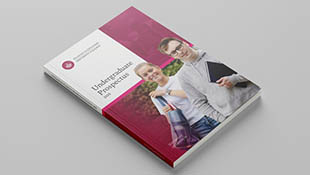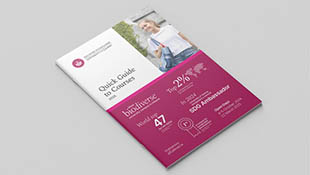-
Courses

Courses
Choosing a course is one of the most important decisions you'll ever make! View our courses and see what our students and lecturers have to say about the courses you are interested in at the links below.
-
University Life

University Life
Each year more than 4,000 choose University of Galway as their University of choice. Find out what life at University of Galway is all about here.
-
About University of Galway

About University of Galway
Since 1845, University of Galway has been sharing the highest quality teaching and research with Ireland and the world. Find out what makes our University so special – from our distinguished history to the latest news and campus developments.
-
Colleges & Schools

Colleges & Schools
University of Galway has earned international recognition as a research-led university with a commitment to top quality teaching across a range of key areas of expertise.
-
Research & Innovation

Research & Innovation
University of Galway’s vibrant research community take on some of the most pressing challenges of our times.
-
Business & Industry

Guiding Breakthrough Research at University of Galway
We explore and facilitate commercial opportunities for the research community at University of Galway, as well as facilitating industry partnership.
-
Alumni & Friends

Alumni & Friends
There are 128,000 University of Galway alumni worldwide. Stay connected to your alumni community! Join our social networks and update your details online.
-
Community Engagement

Community Engagement
At University of Galway, we believe that the best learning takes place when you apply what you learn in a real world context. That's why many of our courses include work placements or community projects.
News Computational Literary Studies - New Partnership
Computational Literary Studies - New Partnership
NUI Galway’s Moore Institute has joined forces with 12 other institutions across Europe for a research project that aims to aid new approaches to the study of literature in the digital age.
Computational Literary Studies Infrastructure (CLS INFRA) is a four-year partnership to build a shared resource of high-quality data, tools and knowledge needed for literary studies using artificial intelligence and other computational methods.
The project is being supported with €5 million funding from the European Commission.
Dr Justin Tonra, Lecturer in English at NUI Galway, whose work in the project will focus on bridging the gap between computational and traditional literary studies, said: “When studying literature we often focus on a small number of books by a small number of authors. With the aid of computers, we can ‘read’ literature at a scale that opens windows onto topics like gender, language and colonialism, and how they are represented in our shared and varied European cultural heritage.”
The overall aim of CLS INFRA is to open up the best data mining resources Europe has to offer in the growing field of Computational Literary Studies, which enables a big-data approach to the study of culture.
For instance, it can help scholars to detect patterns which show what literary genres were prevalent at certain times; if and how gender manifests in the language of writers; whether the movement of literary style can be mapped across time and space.
The CLS INFRA project will identify and map the specific requirements of researchers who wish to study literature using technology and AI. Partners in the 13 institutions will bring together existing resources as well as develop new tools, services and literary collections.
A further aim of the project is to open up Computational Literary Studies to more researchers and enable investigation into Europe’s multi-lingual and interconnected literary heritage and cultural diversity.
Support services and training will be provided to researchers who are new to the use of computers and AI for literary study. Scholars from under-represented regions and languages, as well as independent and citizen scholars, will also be supported.
Dr Maciej Eder, Director of the Institute of Polish Language at the Polish Academy of Sciences and Principal Investigator of CLS INFRA, said: “This is a very exciting project which promises to make great advances in how we use computers to study literature.
“One of the great challenges to Computational Literary Studies is that the landscape of digital literary sources is very fragmented, as scholars and readers struggle to find texts that are made accessible and reusable in standardised ways. CLS INFRA will address this deficit in a way that will allow the field to flourish.”
Dr Tonra added: “The partnership of 13 European institutes will also foster systematic and meaningful cooperation across national borders and linguistic boundaries, as well as disciplines of study.
“Human beings are storytellers. Nowhere do we see the expression of human ambitions, values, norms and desires more clearly than in the collected literary works that have been created over centuries of human creativity.
“The emergence of information and communications technologies has given us an unprecedented opportunity to share, compare and understand this legacy across national borders and linguistic boundaries.”



















